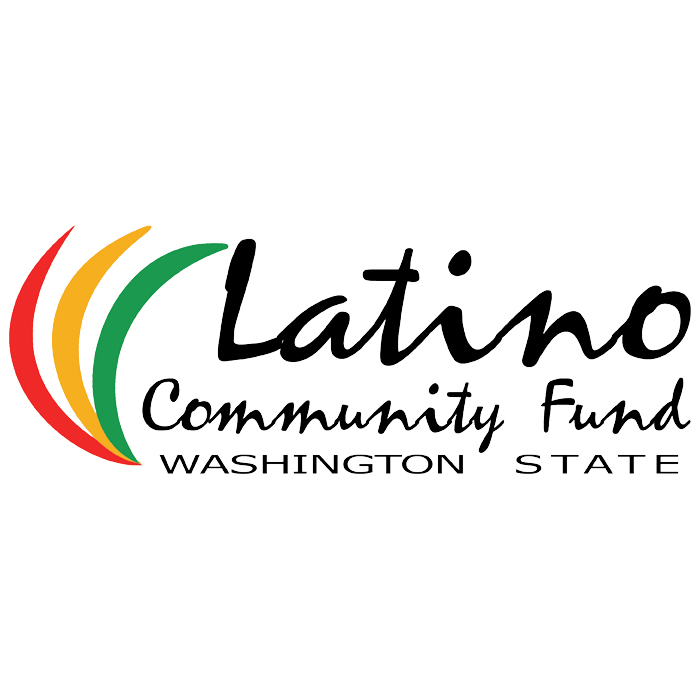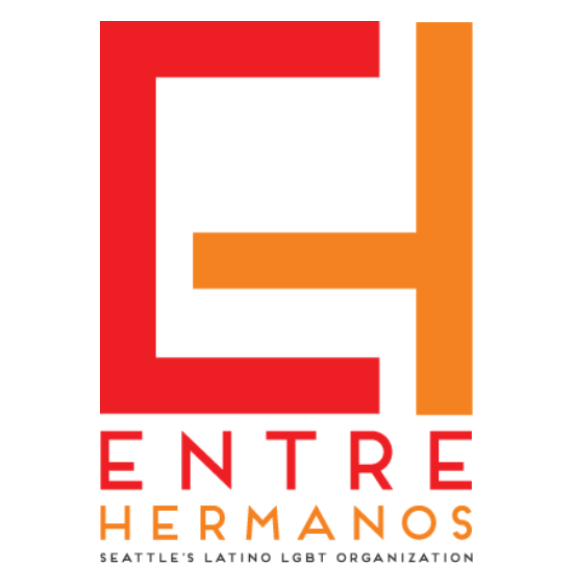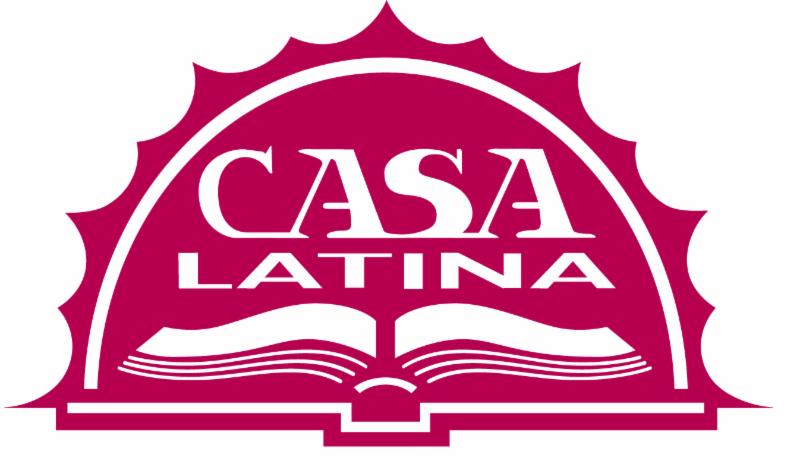
Hispanic Heritage Month celebrates the independence of Costa Rica, El Salvador, Guatemala, Honduras, Nicaragua, Mexico, Chile, and Belize. On Sunday, September 16th, KEXP will celebrate the Latinx community and Mexican Independence Day with a day of programming featuring Latinx artists from around the world and a Pop-Up Mercado in the Gathering Space from 10 AM-4 PM.
The Pop-Up Mercado will feature goods by local Latinx artists: Senorita Sin Miedo, Carlos Martinez, Mousy Collection, Line Marker, Maese, Kema, Vertical Gardens NW, Marigalvan, Raquel Garcia, and Amano Seattle.
Throughout the day, we'll be airing exclusive interviews with Marcos Martinez from Casa Latina, Jose Manuel Vasquez from the Latino Community Fund, and Luis Fernando Ramirez with Entre Hermanos. Read excerpts from those chats below to learn more about these non-profit organizations who serve the Latinx community in Seattle.

KEXP: Tell us about the Latino Community Fund.
Jose Manuel Vasquez: We invest in Latino populations across the street, and kind-of help to cultivate new leaders, support effective nonprofit organizations across the state, and just help improve the livelihood of all Washingtonians trying to create a support system for Latino populations to thrive and to create new leaders to create solutions for communities needs.
Latino Community Fund is part of the Washington Immigrant Solidarity Network, correct?
Yes.
It's interesting because we're celebrating Mexican Independence Day here at KEXP, and to me, it's kind of ironic that we're celebrating the day while people are being detained and families are being separated. What do you think is the missing piece in that conversation between people who have opposing views?
I've had a lot of those challenging conversations. And what I recommend is always, look past the general issue and get to know the individual. Get to know the stories that are actually going on. I, myself, I'm a documented citizen. I grew up a document in this country, yet I consider myself an American. My family has been in this country for generations. My grandfather came over to set up a program. My uncles were recruited by the fishing boats that go into Alaska every year. So the immigration issue that we're dealing with right now, there's a lot of back story of why we are where we're at today. And for example, in my family's case, it was because of economic opportunities. On the flip side, it was because of the economic needs of this country. Thankfully because of that sacrifice my parents made, I was able to graduate from college from the University of Washington and I was able to start my own business. And now I'm working at a nonprofit organization trying to do good for our community, trying to make this world a better place. But when you add that context of immigration in what this administration is doing, it pushes all that aside. So the contributions I bring this society, to this community, are just getting erased because of what's going on right now. So how can we balance that? How can we have that real complex conversation about not just the issue of the system but also how it's impacting individuals and families especially families that are being torn apart. It's things like this, the more you know, the more you understand about why things happen the way they happen. And you're more accepting of what that complexity is. It's not one cookie cutter solution for everything. It's going to be a complex debate. It's going to be a complex solution. Whatever side you are in the political spectrum, we still need to have that debate. But right now, they're just not having it.
What would you say to those people [reading]? How can they specifically stand with immigrant communities and refugee communities?
You mentioned The Washington Immigrant Solidarity Network. That's definitely a great network to step up and volunteer for. That's the main frontline defense for a lot of immigrant communities. When there are ICE raids, there's a volunteer e-mail that blasts out so that if you want to be a rapid response, you can go to the training.
Just be an observer, and make sure that what this administration is doing is right because they're even skirting their own laws trying to apprehend people without just cause. And it's up to all of us to hold this administration accountable.
So, get trained, know what your rights are. Make sure people know what their rights are also, so if you see something, say something. I've heard cases of people getting yelled out at the bus for wearing a jihad or people getting yelled at for just looking differently. So if you see something like that, say something and don't let that hate live in our communities.
And in November, the midterm elections are coming up. And what I tell everybody is, it doesn't matter if you're a Republican, Democrat, independent, doesn't matter what political spectrum -- hold your elected officials accountable. Make sure they are representing what your needs are. And if you believe that this is important, make sure they know that it's important to you.
How does music play into this? Why does music matter?
I think music matters a lot because it lets you express your emotions sometimes when you can't do it early or on your own. Sometimes music lets you channel that emotion, that energy. And for me in particular, especially with this situation... I mean, I remember growing up here in Seattle and I never knew of any prominent Latino artists that I could directly relate to. I knew the artist that my parents listened to, and they're amazing. But it wasn't until later, like in my college years, that I started hearing artists like La Santa Cecilia, Lila Downs, even Cafe Tacvba. I went to the concert when they were here the other day. It was amazing because sometimes their message is also about the community struggle and how we are resisting oppressive systems. And sometimes music lets you express that it lets you take that energy and represent in music.
Is there anything else you want to share about Latino Community Fund?
Right now, we're currently in our active grants process so we are trying to invest close to a hundred thousand dollars into Latino-serving organizations across the state. So we're having that community grant review process right now where we take our hands off the steering wheel and let our community recommend where those investments should go. And we invite community leaders from across the state to help make those recommendations.
But alongside that, we're also trying to amplify the impact of our investments. So, we're also currently in fundraising mode, trying to get that next hundred thousand invested in our communities. So I would ask, anybody who is willing to help support that cause, go to our website. Help us make that impact, help us invest in our future, help us invest in the organizations that are providing these vital services to our community, and help us show a better community can thrive and that our community is valued.

KEXP: Tell us about your organization.
Fernando Ramirez: Entre Hermanos does a lot of things for the LGBTQ Latino community. And our mission is to promote the health and well-being of the LGBTQ Latino community in a culturally appropriate environment — prevention, education, integration, support services — all of the things that are priorities within our communities.
What would you say to folks who are having conversations with people who have very different opinions and ideas about the LGBTQ community and about the Latinx community, especially here in our political climate? What is the way that we bridge that gap between people who have very different ideologies and opinions?
Yes, we understand that for many, many years, and culturally for the Latino community, there is a sense of different ideas or thoughts or believes about the LGBTQ community. It might sound like a cliché but all of us are humans so it has nothing to do with tolerance. That's what I always say. We are not asking for tolerance. We are asking for respect. "Tolerating" someone means something that you don't want to do, you have to. It is very important to be respectful for who someone is. This is not a choice that we have. It's not something that we decided to be. It is what we are and being rejected because of what we are, the way that we were born, is not acceptable. Respect and love are some things that are very important within any community, not just the Latinx community.

KEXP: Tell us about your organization.
Marcos Martinez: We're a community based non-profit organization here in Seattle and we serve the Latinx immigrant community throughout King County, and we also serve folks in Pierce County and up in Snohomish County. Primarily, we serve immigrant day laborers and domestic workers. And our work is primarily in employment, connecting people with employment opportunities. One way I describe it is like, the folks that you see standing out in front of Home Depot trying to get a job. We invite folks in and we connect them with employment. We serve men and women. Women we connect with mainly domestic work, so cleaning houses and doing other kinds of domestic work. We also provide educational opportunities: ESL programs, some job training, and job safety training, and then we're also doing community organizing work. So we're involved with immigration reform and especially since the 2016 elections we've really ramped up our work in protecting communities against this very harsh immigration enforcement and working collaboratively with other organizations to protect and defend our community against the attacks of this government that we have going on right now.
That's really important work and so relevant. Has been for a long time. And I think, based on the current system, people are more upset and becoming more aware because we're talking about it a lot. How can people get involved to support Casa Latina and stand with that community? Not in a tokenizing way, like, "here's $100." How can they really stand with that community and support the work that Casa Latina does?
Well, a hundred bucks is still good. I do want to say that financial support is still very helpful. The reality is that financial help still goes a long way to support our work. But I also hear what you're saying: that there are so many more ways that people can support. So, one thing that happened a few months ago that was so beautiful: we were organizing around the "Families Belong Together" campaign. When people heard about what the administration was doing — separating families at the border — people became so outraged and so many allies wanted to do something. And so one of the things that we did was we organized a protest at the ICE offices in downtown Seattle. A lot of people wanted to be a part of that and we actually had a bunch of people — mostly white folks, moms and caregivers, and people who take care of children — and we went, sat down, and we blocked the entrances to the ICE offices and that was like a direct action people were able to take where they were able to put themselves on the line, so to speak. It was like one symbolic act.
And obviously that by itself didn't solve the problem but it gave people a way to put themselves out there and then they remained involved. They became part of an organization, they became part of a broader coalition of groups that are continuing to take action — you know, contacting their elected representatives, working on campaigns. And there are groups that are continuing to organize to come together on a monthly basis, on a weekly basis, to find ways to protect and defend our communities, work with elected officials, and do a variety of different things to to be part of this movement and this resistance. So, people can contact our organization. We're part of a coalition called the Washington Immigrant Solidarity Network that is working really hard and is part of a larger movement that is working on these issues.
Who have been some influential Mexican or Latinx artists in your life?
Well, I did grow up in a Mexican household and my mom always had the radio on. So, yeah, like old-timey Mexican artists like Lucha Villa. And in a previous life, I also worked in a free-form public radio station, so I was exposed to a lot of different kinds of music. You know, some of those old-time Mexican mariachi songs and ballads that just really hit you, they just really get you in your gut. And I really love when I hear that sometimes.
It can take you back and kind of reconnect you to your culture.
It does. I mentioned that I used to work in radio and I've listened to so much different kinds of music from all over the world and it's incredible how a medium like public radio or community radio can connect us to so many different kinds of things. And you feel so connected globally. But then you also can go back to your own roots and feel that very personal connection that just kind of feeds your soul.
That's awesome. Is there anything else you want to share?
Thank you for asking. We're having our annual fundraising gala at the end of September on the twenty-ninth. The information is on our website. It'd be awesome if people come out and have a good time with us. It's a wonderful celebration.
DJ Chilly, host of KEXP's El Sonido, shares some of his favorite Café Tacvba videos in celebration of Mexican Independence Day and KEXP's re-airing of an exclusive live performance from the influential Latin America band.